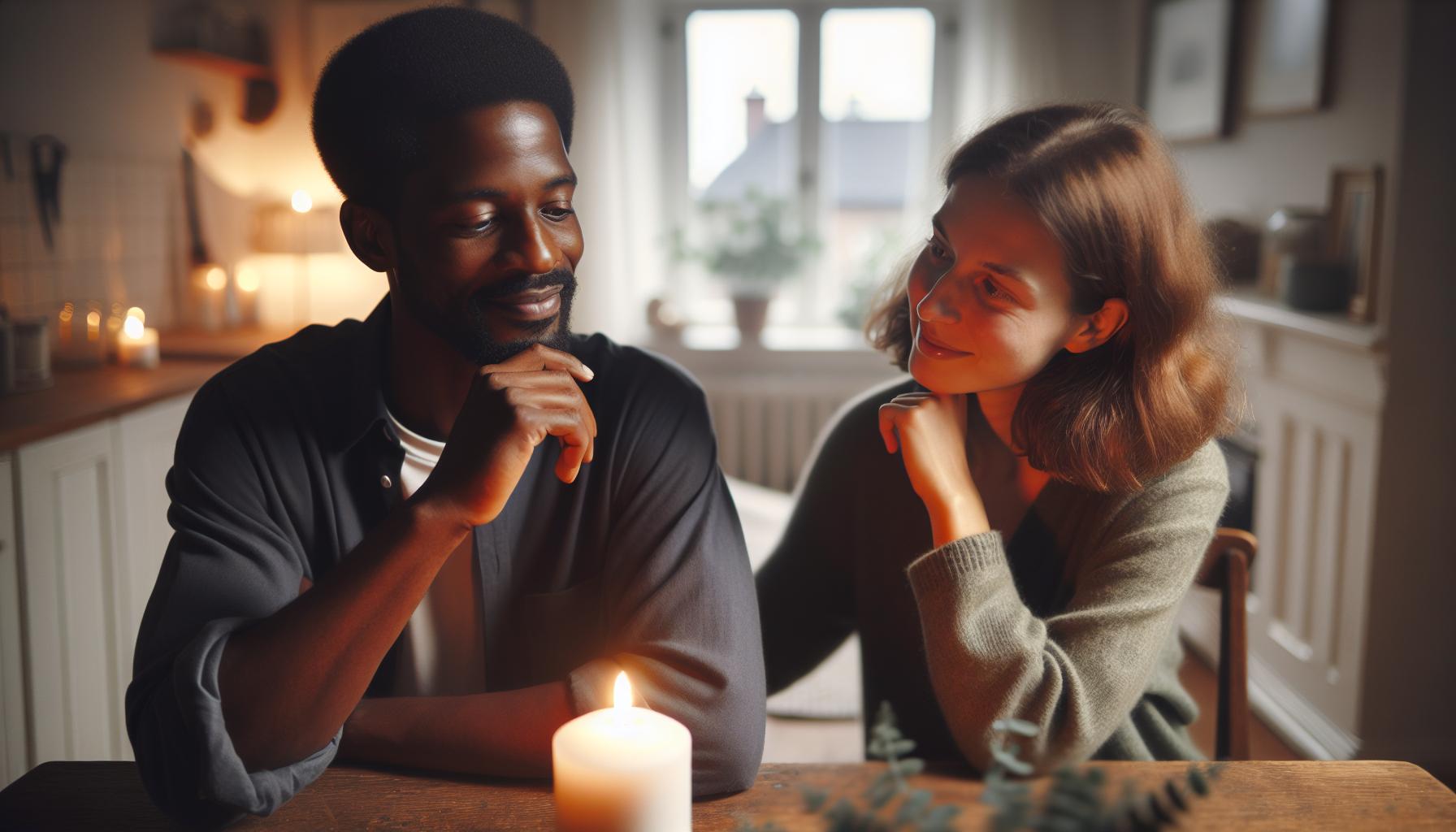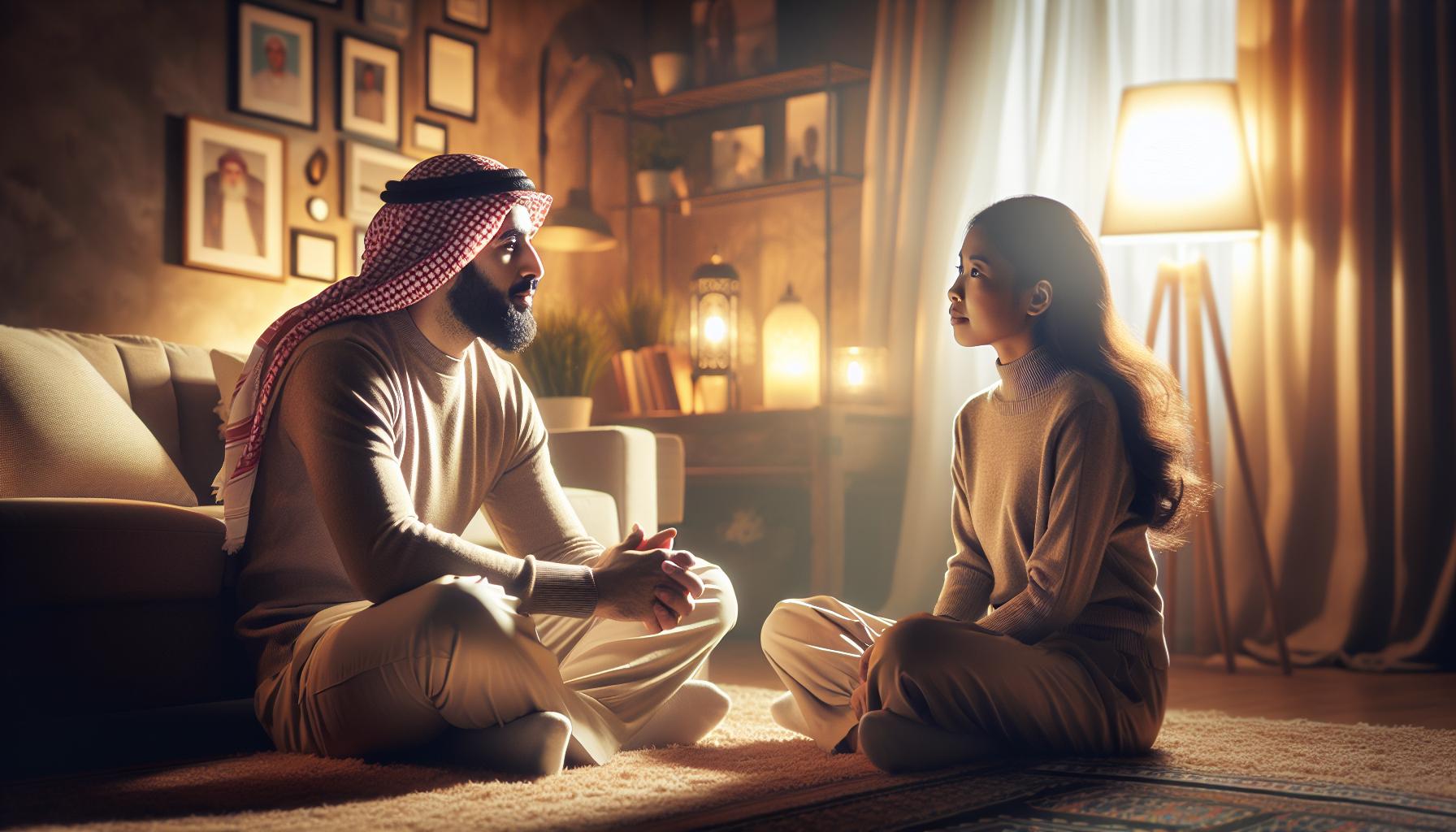Marriage is a beautiful journey, but let’s face it—sometimes it feels like navigating a minefield while blindfolded. Whether it’s the endless debate over whose turn it is to do the dishes or the mysterious disappearance of socks, every couple hits bumps along the way. That’s where marriage counseling questions come in, like a GPS for your relationship, guiding you back on track.
Understanding Marriage Counseling
Marriage counseling serves as a vital resource for couples facing challenges. It focuses on improving communication and resolving conflicts.
What Is Marriage Counseling?
Marriage counseling involves professional guidance provided by a licensed therapist. This process helps couples explore their issues in a structured environment. Therapists facilitate discussions aimed at enhancing understanding and connection. The sessions typically cover various topics, including communication styles and emotional needs. Investing time in counseling can lead to a healthier relationship dynamic.
Benefits of Marriage Counseling
Counseling offers numerous advantages for couples. Improved communication skills emerge as couples learn to express emotions effectively. Conflict resolution strategies become clearer, empowering partners to navigate disagreements more smoothly. Increased emotional intimacy is another significant benefit, as partners reconnect on a deeper level. Additionally, counseling provides a safe space for honest discussions, fostering trust and vulnerability. Overall, the support from a therapist can reignite passion and strengthen the partnership.
Key Marriage Counseling Questions

Marriage counseling questions serve as a guide for couples looking to enhance their connection. Addressing crucial topics fosters understanding and strengthens bonds.
Questions About Communication
Effective communication is vital for a healthy relationship. “How do you feel when I don’t listen?” encourages partners to express feelings. Another thought-provoking question is, “What can we do to improve our communication?” Focusing on solutions helps couples take actionable steps. “Are there specific topics you find difficult to discuss?” identifies potential communication barriers. Asking, “How can we ensure our conversations are positive?” promotes a constructive dialogue. These questions stimulate open discussions and increase awareness of each other’s needs.
Questions About Trust and Honesty
Trust operates as the foundation of any strong relationship. “What would help you feel more secure in our relationship?” shows commitment to addressing insecurities. A question like, “Have I broken your trust, and how can I rebuild it?” initiates a deep reflection. “What does honesty mean to you?” uncovers individual expectations. Partners might ask, “How can we foster transparency between us?” This question emphasizes the need for openness. Structuring conversations around trust nurtures a stronger emotional connection.
Questions About Conflict Resolution
Conflict resolution skills enhance relationship resilience. “What strategies can we use to resolve conflicts?” encourages proactive problem-solving. Additionally, “How do you feel during our arguments?” enables partners to express emotions. A relevant question like, “What triggers major disagreements between us?” identifies recurring issues needing attention. “What is your preferred way to handle conflicts?” provides insight into individual approaches. These targeted questions contribute to a healthier environment for addressing and resolving conflict.
Practical Application of Questions

Effective use of marriage counseling questions can significantly enhance relationship dynamics. Couples benefit when they approach discussions with openness and sincerity.
How to Use These Questions Effectively
Start by ensuring both partners feel comfortable. Create a safe space where individuals express feelings honestly. Focus on one question at a time to encourage deeper discussions. Taking turns asking and answering fosters mutual understanding. Listen actively, reflecting back emotions and thoughts shared. This approach promotes an environment of trust, allowing each partner to feel valued and heard.
Incorporating Questions into Regular Check-ins
Establish a routine to check in with one another regularly. Weekly or bi-weekly sessions create a structured opportunity for dialogue. Choose specific questions to guide conversations toward important topics. Consistency builds a habit of open communication, reinforcing connection. Celebrate progress made during these discussions, recognizing improvements together. Incorporating questions into daily life strengthens the relationship, making conflict resolution easier and more effective.
Finding the Right Counselor
Choosing the right counselor is essential for effective marriage counseling. Couples should prioritize finding someone who understands their specific needs and dynamics.
What to Look For in a Counselor
Experts recommend seeking licensed professionals with experience in relationship issues. Check their credentials and ask about specific training in marriage therapy. Compatibility matters too; couples should feel comfortable with their counselor’s style. Additionally, consider whether they incorporate various therapeutic approaches, such as cognitive-behavioral techniques or emotionally focused therapy. Availability and logistics, such as location and fees, also play a crucial role in selecting the right fit.
Questions to Ask Potential Counselors
Couples can begin by asking about the counselor’s experience with similar issues. They should inquire about the counselor’s methodology and how it aligns with their goals. It’s also beneficial to discuss their approach to conflict resolution and communication. Understanding the expected duration of counseling sessions can provide clarity. Finally, couples should feel free to ask about confidentiality policies to ensure a safe environment for discussions.
Conclusion
Marriage counseling questions can be a transformative tool for couples looking to strengthen their relationship. By fostering open dialogue and encouraging vulnerability partners can build deeper emotional connections. The right questions not only enhance communication but also promote trust and understanding.
Incorporating these discussions into regular routines helps maintain a healthy relationship dynamic. Couples can navigate challenges more effectively when they feel secure and heard. Seeking professional guidance further enriches this journey, allowing couples to explore their unique issues in a supportive environment. Embracing this process can lead to lasting positive changes in their relationship.

